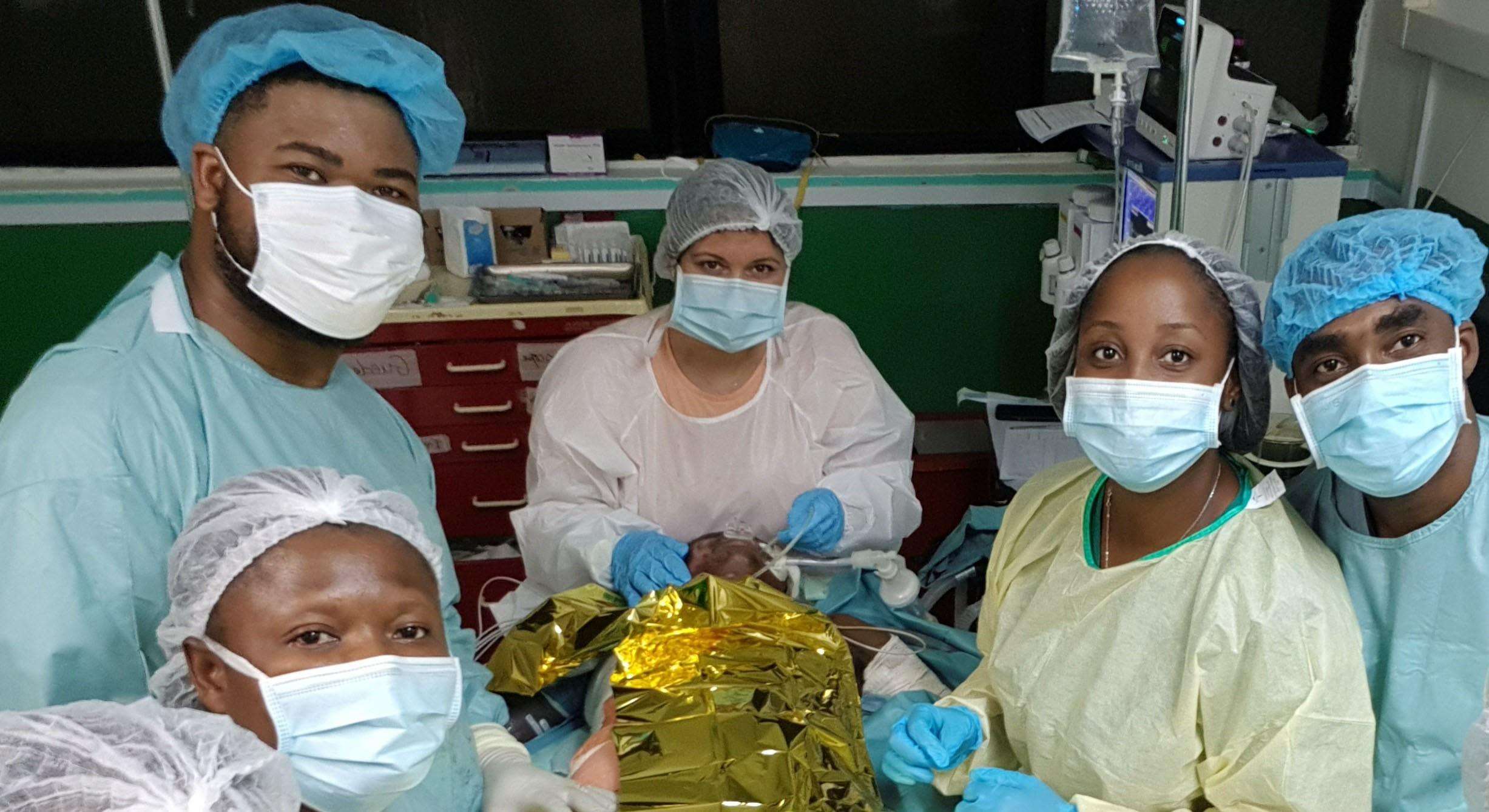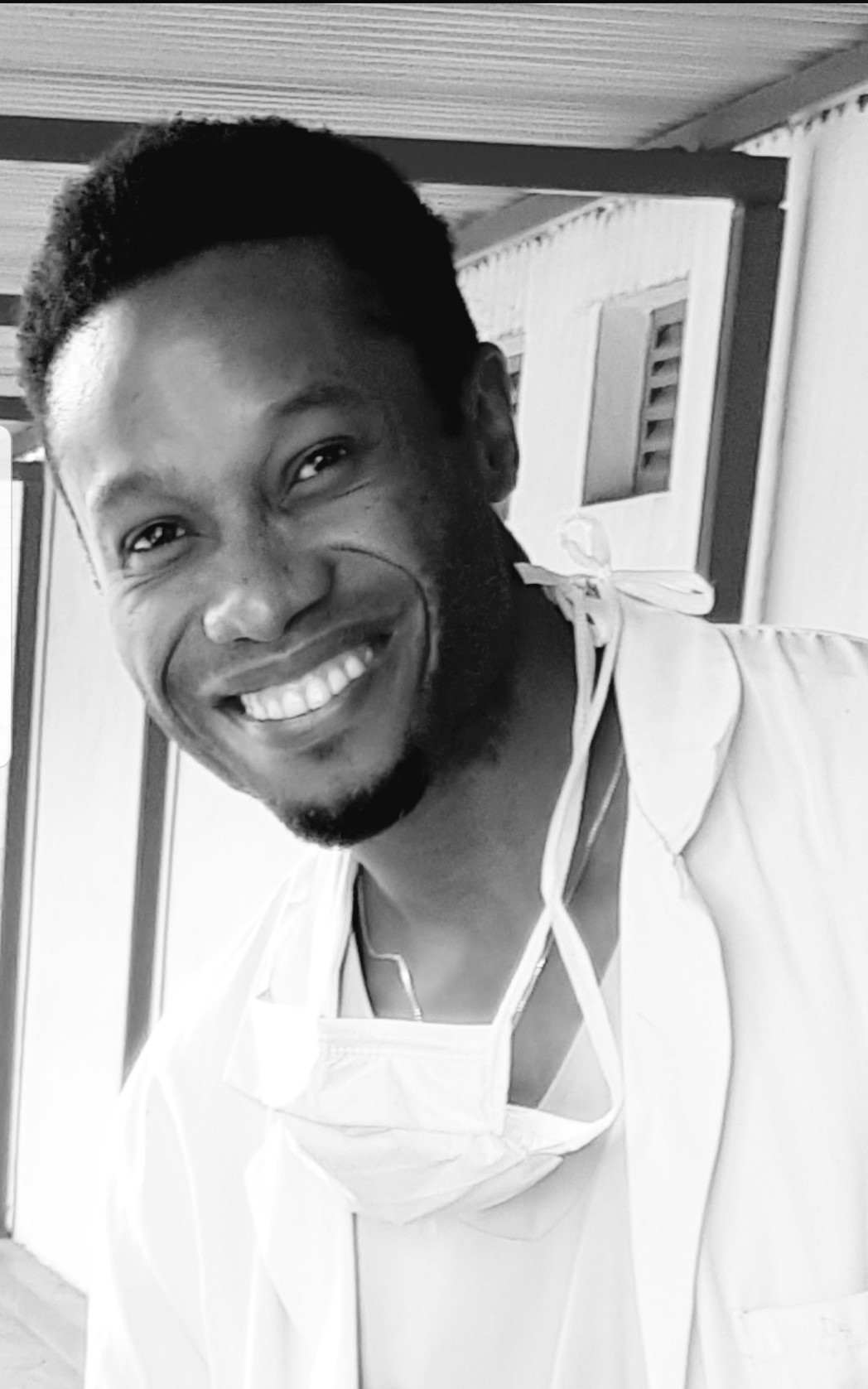Photo of MSF and Hôpital Justinien surgical team staff taken by Dr. Felix in Cap-Haïtien.
On the night of December 13, 2021, a fuel truck exploded in Cap-Haïtien, northern Haiti, causing several dozen deaths and injuries. The consequences of this explosion were especially dramatic given the economic and political instability of the country and the weakness of its health system. Here, Doctors Without Borders/Médecins Sans Frontières (MSF) doctor Karry Jose Felix explains his experience caring for victims of the explosion and the challenges he faced.
MSF sent a medical team to the scene soon after the incident and organized the transfer of the severely wounded to the specialized burns hospital it runs in Port-au-Prince. But for the others, care had to be provided on-site. Burn victims are complex patients, with very high mortality and serious long-term health effects if not treated properly.
"We are doing our best to put together an international team, but we still can't find a burn surgeon available to go to Haiti," the manager in Paris told me. It was the holiday season and finding surgeons willing to join an emergency mission in a "red" (in terms of security) country was not an easy task.
Being Haitian myself, and a burns surgeon working internationally for MSF, I immediately volunteered. I am also from Cap-Haïtien, so I was familiar with the place, the health facilities and the surgeons.
So I went to Haiti on December 24 with an international team to continue the medical activities that had already started. Together with the team on site, we were working to stabilize critical patients, move into the reconstruction phase of surgery (excisions and skin grafts), organize the workflow, place the necessary orders and recruit and train staff when required.
We faced many difficulties: precarious hygiene conditions and a lack of equipment and paraclinical examinations or blood tests, as well as the inexperience of local staff in the treatment of severe burns.
However, the dedication of everyone and the synergy of forces allowed us to carry out our missions and gradually strengthen the self-reliance of the local staff. Thanks to this collaborative work, we were able to share our knowledge with them, particularly in terms of resuscitation of burn victims, identification of signs of sepsis, carrying out skin grafts, the need to introduce physiotherapy early on to prevent functional and cosmetic problems, etc.
The resilience of the patients and the trust they placed in us also impressed me. Most, if not all, of them had lost loved ones in the fire, and their courage was a source of motivation for our team. After five weeks, the intensive care management of the cohort of blast victims (as well as some new admissions) was almost complete. Although we were not able to save all of our patients, we were proud that the vast majority of them had come through and were starting their outpatient follow-up treatment.
Looking back, it's a bit of a strange feeling to be an expatriate in your own country, having to follow strict safety rules in a familiar environment, or not being able to spend time with your loved ones. However, I am proud to have joined the Cap-Haïtien team. This dual role has allowed me to act as a facilitator between the different sides involved. Although many challenges remain in Haiti, I left Cap-Haïtien with the feeling that I was there for my people at a time when they really needed it.
Karry Jose Felix, 38, is a general surgeon who graduated from the State University of Haiti and completed an international master's degree in public health in Jerusalem and a clinical fellowship in global surgery in Ottawa. He has a particular interest in traumatology, reconstructive surgery, burns, teaching, research, and humanitarian work. He worked at the MSF burns hospital in Drouillard, Port-au-Prince, from 2016 to 2019 and now works internationally for MSF as a surgeon.





